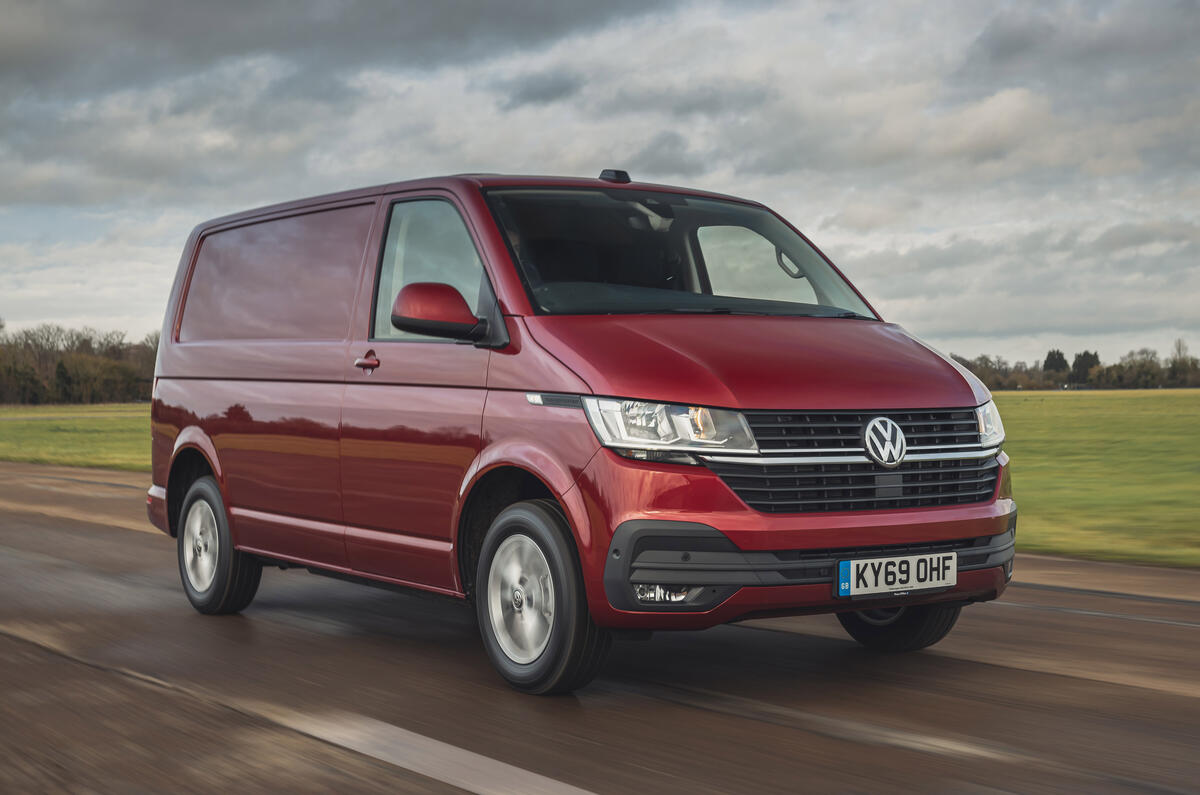Manufacturers must make more effort to fit “life-saving” collision avoidance technology to their vans as they do to their cars, leading safety bodies have stressed.
Euro NCAP, in partnership with Thatcham Research, has launched the first Commercial Van Safety Rating to assess the performance and fitment of features in vans now commonly found in cars. These include automatic emergency braking, lane-keeping assistance, a speed limiter and seatbelt reminders.
Nineteen vans - representing 98% of new van sales, it's claimed - were tested in the first round. Only the Volkswagen Transporter (the highest with a 66% rating), Ford Transit and Mercedes-Benz Vito were awarded the top Gold ranking, with five vans given a Silver rating and six given a Bronze rating.
Both the Transporter and Vito are fitted as standard with automatic emergency braking - something many of their rivals don't offer.
A number of older vans performed so poorly that they were given a Not Recommended rating. These include the Renault Master, Nissan NV400, Renault Trafic, Vauxhall Movano and Fiat Talento, the latter of which received a safety score of just 5%.
Thatcham's director of research, Matthew Avery, said: “This first batch of test results show the fitment of crucial safety technology on vans is woefully low.
“It’s a serious issue that needs addressing urgently, particularly with van numbers increasing and the continued surge in demand for home deliveries during the pandemic and before Christmas.”
Avery highlighted the “definite lack of parity” between the collision avoidance systems offered as standard on cars such the Renault Clio - a Euro NCAP five-star car - and the Trafic, which has “practically nothing, not even as an option”.
Thatcham’s analysis of UK government data on road safety from 2018 suggests that vans are more likely to be involved in an accident with fatal injuries to other road users than any other type of vehicle. Despite this, it claims that just 12.8% of new vans feature any form of automatic emergency braking, compared with 62% of new cars.
New EU legislation, dubbed General Safety Regulations (GSR), will ensure all new vans are fitted with “certain ADAS technology”, but that isn’t due to come into force until 2024.
Thatcham hopes the UK will honour its agreement to sign up to GSR despite having now left the EU, and Avery added that he wishes to see "more collision avoidance technology fitted as standard and readily available long before then”.
Autocar has received a statement from Renault regarding the results. It states: “Safety is of the utmost importance in the development of all our vehicles."
"We have developed vans that offer passive and active safety features that meet the requirements of our professional customers and are compliant with all market regulations where they are sold. In the UK, a number of ADAS (Advanced Driver Assistance Systems) features are offered as an option. We continuously monitor our line-up to improve our products as well as the satisfaction and safety of our customers.”
2020 Commercial Van Safety Ratings
Gold rating
Volkswagen Transporter T6.1 65%
Ford Transit 2T 63%
Mercedes-Benz Vito 61%
Silver rating
Ford Transit Custom 58%
Mercedes-Benz Sprinter 52%
Volkswagen Crafter 44%
Peugeot Expert 44%
Vauxhall Vivaro 42%
Bronze rating
Citroën Dispatch 37%
Toyota Proace 35%
Peugeot Boxer 33%
Citroën Relay 32%
Iveco Daily 30%
Fiat Ducato 28%
Not recommended
Renault Master 16%
Nissan NV400 12%
Renault Trafic 11%
Vauxhall Movano 7%
Fiat Talento 5%
READ MORE
New assisted driving grading aims to reduce safety tech confusion




Join the debate
Add your comment
EuroNCAP board meeting. How can we increase our revenue and profit as car test numbers are declining? Let's add vans and charge them to for scores. I gave up on NCAP as nothing more than money making when they started giving different scores depending how many types of annoying beep you had for not plugging in seat belts. More than 2 types of beep and you got an extra star.
I remember Van's not been very safe in an actual crash test so it would be interesting to see how to perform now in a head on collision act 4mph and an offset collision too. That is what's more important not all this bullshit about not been safe because a vehicle does not have certain electronic aids.
Is there a solid connection between 'alarming' lack of safety features, and actual crash statistics?I suspect not, but would interested to see the figures. Otherwise, it's a job creation scheme.
I was wondering the same, it's about time cars, and vans in this case, had a crash test score and a separate score for added safety tech, after all cars that in the past have performed well are suddenly deemed unsafe when the new test regime includes newer safety tech not available on the older car, yet the cars structure and safety systems still protect the occupants as safely as they always did in an actual collision.